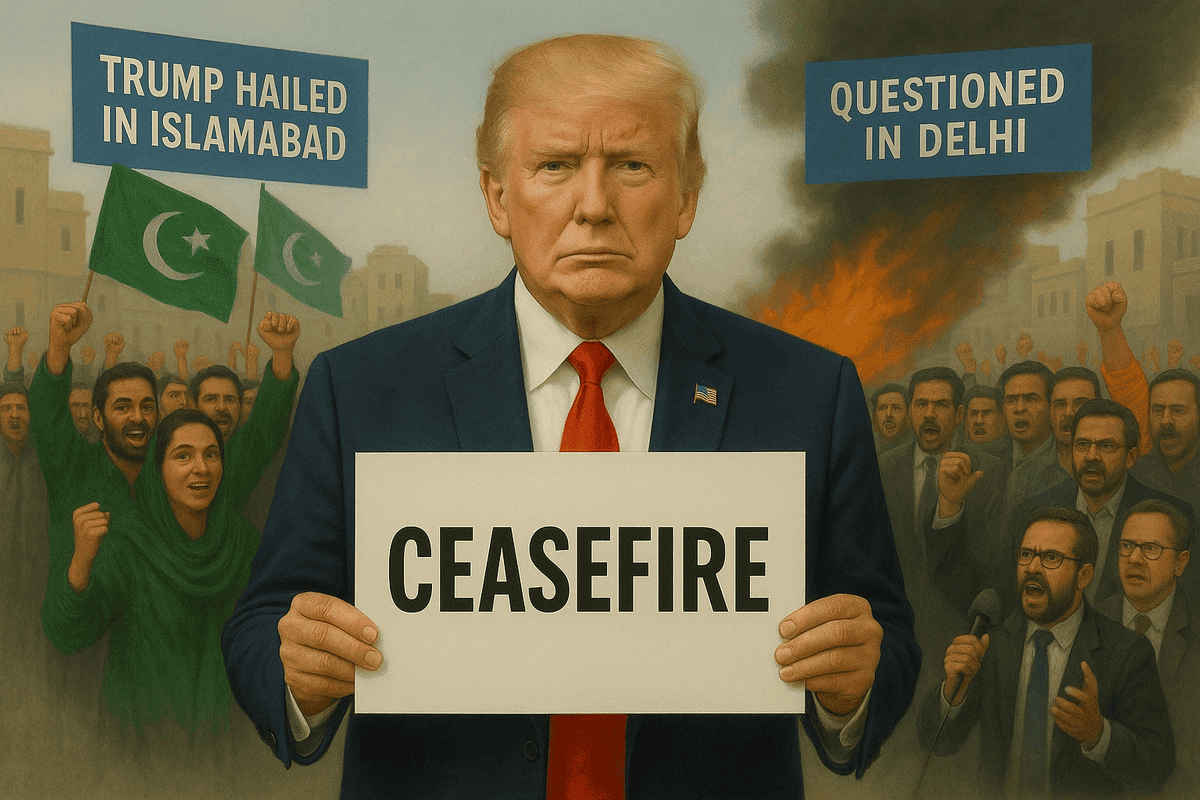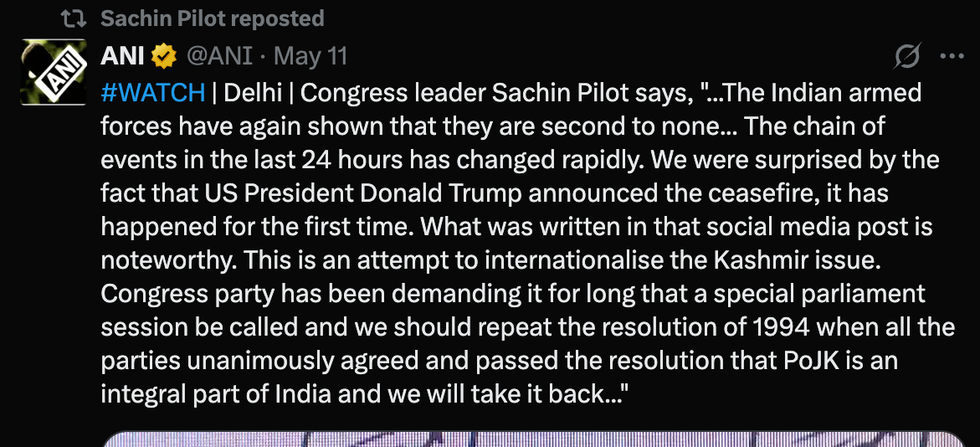News Desk
The News Desk provides timely and factual coverage of national and international events, with an emphasis on accuracy and clarity.

When U.S. President Donald Trump announced that India and Pakistan had agreed to a ceasefire after days of missile strikes and drone attacks, the contrast in response from both sides was striking.
While New Delhi maintained a stony silence on Washington’s involvement, Islamabad rolled out the red carpet for U.S. President Donald Trump.
Pakistan’s Prime Minister Shehbaz Sharif appeared on national television shortly after the ceasefire announcement to publicly thank Trump, Secretary of State Marco Rubio, and Vice President J.D. Vance for what he called their “proactive role” in facilitating peace. He hailed their “valuable contributions to peace in South Asia,” and even credited the U.S. for preventing further escalation.
Silence from India
India, however, refrained from any acknowledgment of American involvement.
Foreign Secretary Vinay Kwatra told reporters the ceasefire followed a hotline call initiated by Pakistan’s Director General of Military Operations (DGMO), during which both sides agreed to “stop all firing and military action.” No mention was made of the U.S.
This silence has unsettled many in India’s strategic and political circles.
“A war or a military confrontation which starts with the express intention and, we are told, visionary leadership and decision-making of Prime Minister Modi cannot end on the basis of a DGMO—who is really quite low down the military food chain—deciding that this conflict has to end,” said Sidharth Varadarajan, founding editor of The Wire, an independent media outlet recently blocked and then unblocked in India.
Internationalizing Kashmir?
Opposition leaders have seized on the moment. Congress party spokesperson Jairam Ramesh demanded clarity on “ceasefire announcements made from Washington, D.C.” and asked pointedly: “Have we opened the doors to third-party mediation?”
Congress leader Sachin Pilot added, “We were surprised by the fact that U.S. President Donald Trump announced the ceasefire. This is an attempt to internationalize the Kashmir issue.”

The Indian government has yet to offer a direct response, even as the global narrative increasingly frames the ceasefire as a U.S.-brokered deal.
“By agreeing to abort under U.S. persuasion just three days of military operations, India is drawing international attention to the Kashmir dispute, not to Pakistan's cross-border terrorism that triggered the crisis,” said strategic affairs expert Brahma Chellaney.
Swapan Dasgupta, a former ruling Bharatiya Janata Party (BJP) parliamentarian, echoed the unease: “The ceasefire has not gone down well in India partly because Trump suddenly appeared out of nowhere and pronounced his verdict.”

Break from global power flex?
India has long resisted foreign mediation in its disputes with Pakistan.
The Lowy Institute warns that any acknowledgment of external involvement risks undoing decades of Indian diplomacy aimed at “de-hyphenating” itself from Pakistan.
"India’s aspirations to establish itself as a regional, and subsequently global, leader, together with its economic strength, have added credence to New Delhi’s position that it does not require assistance in dealing with its neighbors," the think tank said.
""So far, the Pakistani narrative that the ceasefire has opened space for US mediation is yet to be countered. India’s population seems unhappy with the United States playing a role in ceasefire negotiations. Many Indians are asking, why did another country announce that India’s armed forces would cease hostilities with Pakistan?" it added.
The silence from India’s top leadership, particularly Prime Minister Modi, has only fueled further speculation.
This frustration, echoed by many at the grassroots, underscores the widening gap between diplomatic decisions and public sentiment in India’s heartland.
“The government did not do the right thing by agreeing to the ceasefire,” 46-year-old Mahato told Scroll on Sunday. “They should have bombed Pakistan as much as possible on the first day itself… We could have won that day itself and wiped out Pakistan.”
* With input from Reuters







Comments
See what people are discussing